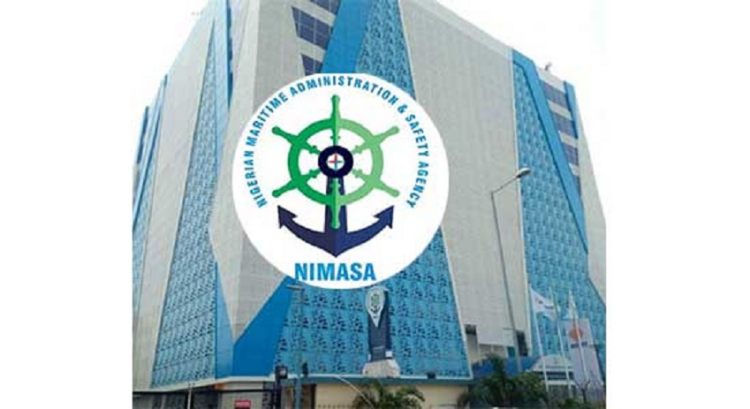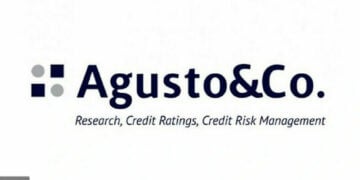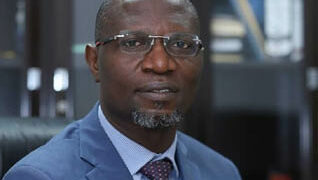As the Nigerian Maritime Administration and Safety Agency (NIMASA) is set to disburse the Cabotage Vessel Financing Fund (CVFF), there have been calls on the government to split the $ 700 million into three parts to achieve economic advancement for the nation, LEADERSHIP can report
LEADERSHIP reports that the minister of Marine and Blue Economy, Adegboyega Oyetola, had approved the disbursement of the CVFF. Thereafter, the director general of NIMASA, Dr Dayo Mobereola, disclosed that the fund would be disbursed before the end of the year.
However, experts have argued that the disbursement of the fund may not have any positive economic impact on the nation’s economy if the vessels are all imported into the country.
The maritime experts urged the government to also invest the fund into shipbuilding, manpower development and vessel acquisition.
They stated that since foreign vessels didn’t contribute to the fund, their economy shouldn’t get economic benefit from the fund contributed by Nigerians to develop their sector.
Speaking to LEADERSHIP, the technical director, Flotilla Academy of Marine Technology (FAMT), Adakole Ejegbudu, said disbursing the fund as it currently stands will only benefit the economy of ship-building countries and not Nigeria.
According to him, the fund must be divided into three parts, which include one part for shipyard development, a second part for manpower development and a third part for vessel acquisition.
He said, “The fund should be divided into three parts, $50 million for Shipyard development, $200 million for manpower development and the remaining $450 million for vessel acquisition. This way, you cover the three pillars of the Cabotage Act.” “Disbursing all the funds for the acquisition of foreign vessels will have minimal impact on the economy. The Chinese economy will benefit more but who would convince NIMASA to do this?”
He continued, “That layout is in broad strokes and I think it is a reasonable template for the disbursement of the fund.”
Adakole, a yacht designer, who said that Shipyards that can build smaller tonnage vessels abound in Nigeria, further disclosed that Nigeria can build a greenfield shipyard with $25 million.
He argued that the indigenous building of vessels would have a backwards integration effect on the entire economy.
“Whether it’s the people who produce the paints, who produce all the additives that will come in, the coatings, the pipes, because there’s a lot of piping in ships. And, I will tell you now, the amount it takes to buy one of these ships is enough to set up a shipyard that can produce those ships.
I repeat, if the government is willing to disburse $25 million for people to buy vessels and with that amount, the country can set up a shipyard from scratch. I’m talking about Greenfield, we’ll set up a shipyard that can produce those ships. That money will set up the yard with all the facilities, equipment, and everything that will produce those ships.
“So now, the building part is the most consequential part of the Act, because you can have a vessel that is manned by 20 people, but the people who took part in the building of a vessel in the shipyard would be in the neighbourhood of 200 to 250. I mean the direct building of the shipyard. This does not take into account the people who played a role in terms of the logistics, in terms of the supply.
“In disbursement, what has the biggest impact is shipbuilding because there are people creating wealth from the supply of materials, from subcontracting, and all of that,” he stated.
Adakole, who studied Naval Architecture at the Westlawn Institute of Marine Technology, United States, further noted that the current CVFF disbursement would create wealth for very few Nigerians, while ship-building countries will take the most wealth.
“Building a vessel of 4,000 driveway tons, that means you’re putting about 15 million US dollars into the economy, So, if we are buying the vessels, likely from Asia, these vessels were bought from Asia, maybe China or South Korea, that means we are taking our commonwealth and you’re handing to the Chinese or the Korean economy. That is one straight fact that we cannot debate.
“Now that we have $700 million that has been kept and curated for such a long time, we want to take it now and hand it over to the Chinese or the South Koreans. The maximum amount to be disbursed is $25 million, and if 30 people benefited, those are the owners, but we are creating jobs for a few people, say 20 crew members on each ship and people who provide some of the support services. So the aggregate effect on the economy does not begin to compare with if you are building ships. That’s the first thing we have to look at, the economic impact and also from the national industrialisation angle,” he stated.
Also speaking, the deputy director of the Transport School at Nigerian Institute of Transport Technology, Dr Gidado Usman, said since the Act explicitly stated that the vessels must be owned, built, manned and registered in Nigeria, automatically the fund expectedly should be applied towards building ships in Nigeria and not purchasing fully built ships.
Dr Gidado stated that existing shipyards can be engaged to build the required ships, while the government can then assist shipyards to create facilities that can also lead to the building of ships in Nigeria.
He argued that since foreign vessels didn’t contribute to the fund, they shouldn’t get more economic benefit from the fund than the Nigerian economy.
“We have several shipyards around that can also be encouraged to upgrade facilities that can lead to building ships. And also, building a ship does not mean that you do everything in the same place. You can assemble one here, one there, and then bring them all together to even sometimes a floating dock, and you put them together, and you have a ship.
“The whole focus should be about acquiring ships, but through building them locally because those ships, as long as they are called cabotage vessels are subject to the Cabotage Act that defines the four pillars on which cabotage should thrive.
“These pillars are built locally, owned by local indigenous operators, manned by Nigerians, and registered in Nigeria. So you can see, all four variables are just here, because if you are an indigenous company, definitely, and you are owning that ship, you have fulfilled one of the parameters.
“Then, the second one is to build the ship in Nigeria. Then you now approach a shipyard within the country to do the buildings and once you do that, registering that ship is automatically done by NIMASA, or any other registrar of ships.
“You see, purchasing or acquiring ships from outside Nigeria, or building them outside Nigeria, will never be cost-effective because the quotation those shipyards will give us will be at least one and a half times what can be utilised to build those ships in Nigeria. There is no way it can be less than that. So at the end of the day, it’s more costly to resort to that and building ships is not a short-term venture, it’s not a one-off purchase; rather, it has to be established over a long time.
“And, it is in the long run that the shipyards become what they are, and ease of ship acquisition, which will boil down to ship repair in the long run, or modernisation, or modification, all these.”
Dr Gidado also stated that indigenous Shipowners can buy a vessel and modify it at the local shipyard into what suits their operations.
“Ordinarily, if it means purchase, for example, from foreign lands, yes, a waiver can be given, so that we can go and acquire a ship, bring it into the country for final installations in the country. At least value has been added locally.
“The indigenous Shipowners can buy a cargo ship, bring it here, yes, modify it to a tanker ship, since we have more liquid cargo to move from within. They can also buy a tanker ship, modify it into a modular container vessel that can carry between 100 and 500 containers. That can also be done in our shipyards as value has been added.”
“This can be termed indigenous construction or local construction but outright buying of vessels should not be allowed. Outright buying should not be allowed, because the intricacies involved in buying a ship outright often result in returning those ships due to non-payment. A shipyard is not a sophisticated plant, it’s just a place with welders and designers,” he stated.











